Unrest in Serbia after elections and attack on LGBTIQ+ centre
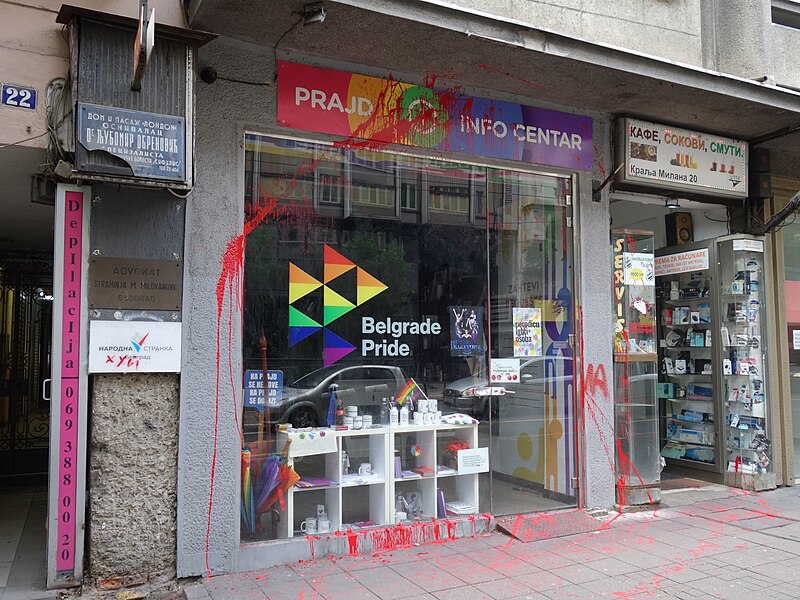
Photo: The Pride centre in Belgrade after an attack in May 2023 - Wikimedia Commons It is unsettled in Belgrade, Serbia. Large-scale protests have been taking place weekly since the 17 December elections. The results are being questioned due to alleged fraud and other disturbances. In addition, the LGBTQ+ community still suffers from exclusion [...]
China's growing influence in Europe's backyard
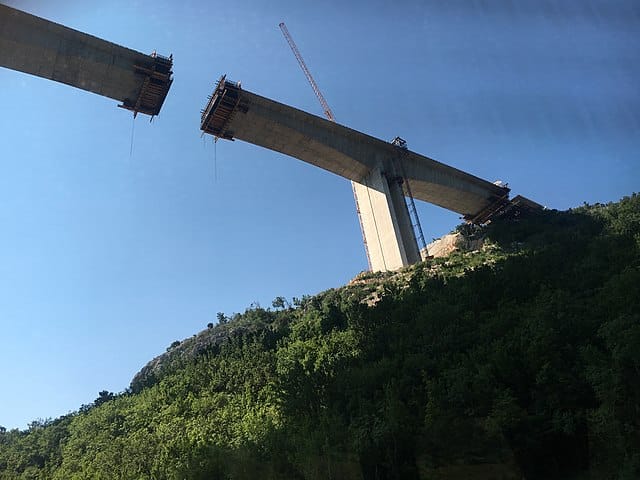
Photo: Construction of a bridge over the Morača Valley, Montenegro, as part of the Bar-Boljare highway - Wikimedia Commons China has been pushing for some time to become the new global superpower. The Belt and Road Inititave been part of this expansion drive. China is keen to expand its global footprint and [...]
Approaching winter opens Europe's gas labyrinth
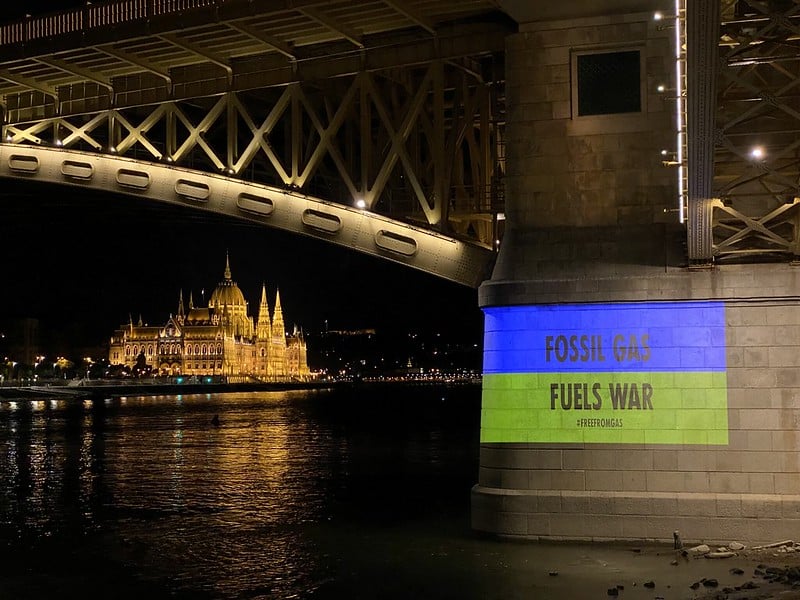
As winter approaches, European countries are increasingly concerned about where their energy should come from. While Hungary, Serbia and Turkey are negotiating to open Russia's gas tap, other countries are instead relying on their neighbours' reserves. Last week, available [...]
"It showed that there are people who are not afraid": Impressions from EuroPride 2022 in Belgrade
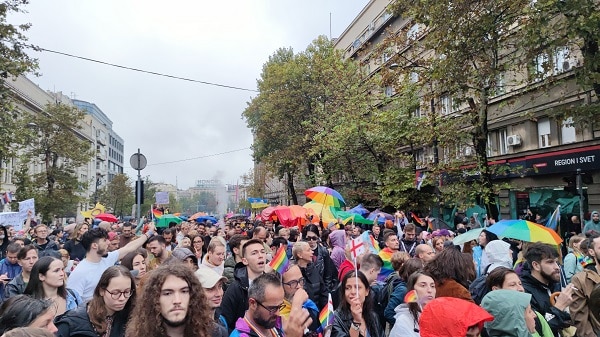
In spite of an initial ban by the Serbian government, Saturday 17 September saw thousands walk through Belgrade in the first EuroPride march ever in the Western Balkans. Despite attempts at stirring trouble, the historic parade took place without major incidents. Despite the rain, thousands marched in Belgrade on Saturday. Picture by Miloš Đajić. The announcements [...]
A concrete perspective is necessary for EU integration of the Western Balkans
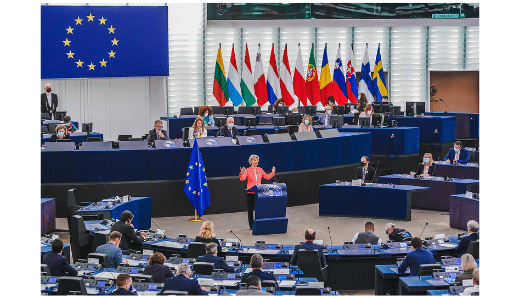
It has been almost 20 years since the EU met in Thessaloniki, Greece, in June 2003 to discuss the integration of the Western Balkans. This included a promise that Albania, Bosnia & Herzegovina, northern Macedonia, Serbia, Montenegro and Croatia would have a clear perspective towards EU membership. After two decades, only Croatia joined in 2013 - the other countries are still in the waiting room, leading to great frustration.
Autocratic leaders in Serbia and Hungary record major election victory
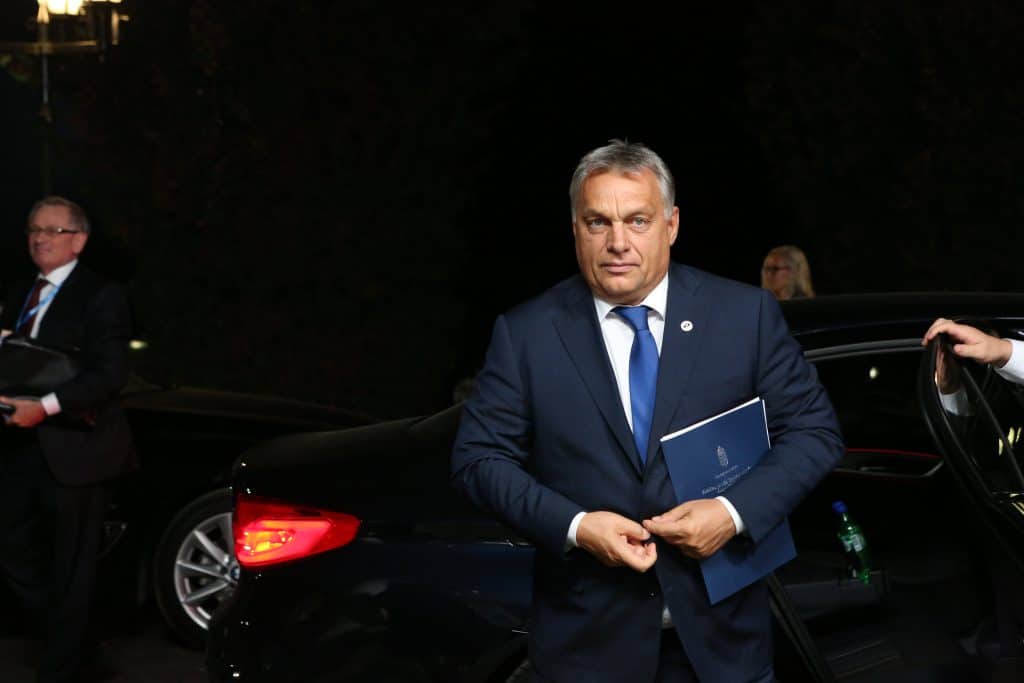
Pro-European, democratic parties in Eastern Europe are suffering a setback after autocratic incumbents in both Hungary and Serbia won major electoral victories. Parliamentary elections were held in both countries on Sunday 3 April. In addition, presidential and local elections also took place in Serbia. The elections were characterised by an uneven playing field between the rulers Orbán (Hungary) and Vučić (Serbia), and the opposition. In both countries, the opposition was united but failed to achieve any successes.
Trump's 'breakthrough' between Serbia and Kosovo
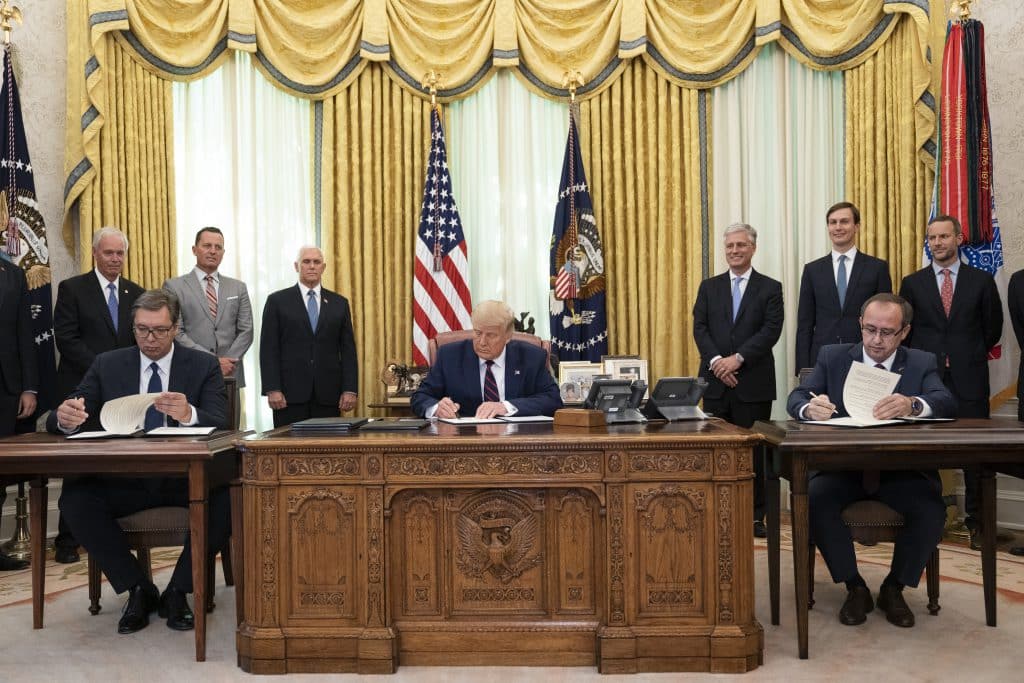
Last Friday, US President Trump announced a breakthrough between Kosovo and Serbia, with an agreement that strengthens ties between the two countries. Since Kosovo's declaration of independence in 2008, the neighbouring countries have had a tense relationship. Serbia refuses to recognise that Kosovo is an independent country, and still sees it as a province of Serbia. For years, attempts have been made - unsuccessfully - to bring the countries closer together. Whether this agreement is really a breakthrough remains to be seen, as its content is not very concrete.
Vucic party wins elections Serbia
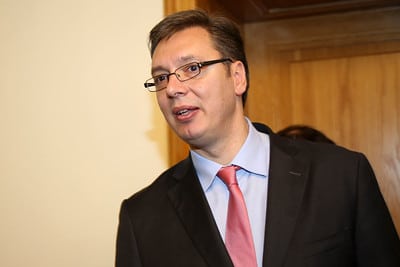
Vucic, who was prime minister before becoming president in 2017, is drawing more and more power to himself in Serbia. In the controversial parliamentary elections, which took place on Sunday 21 July, his right-wing populist party, the Serbian Progressive Party (SPS) triumphed in dubious fashion.
'Country of the Week' - Serbia
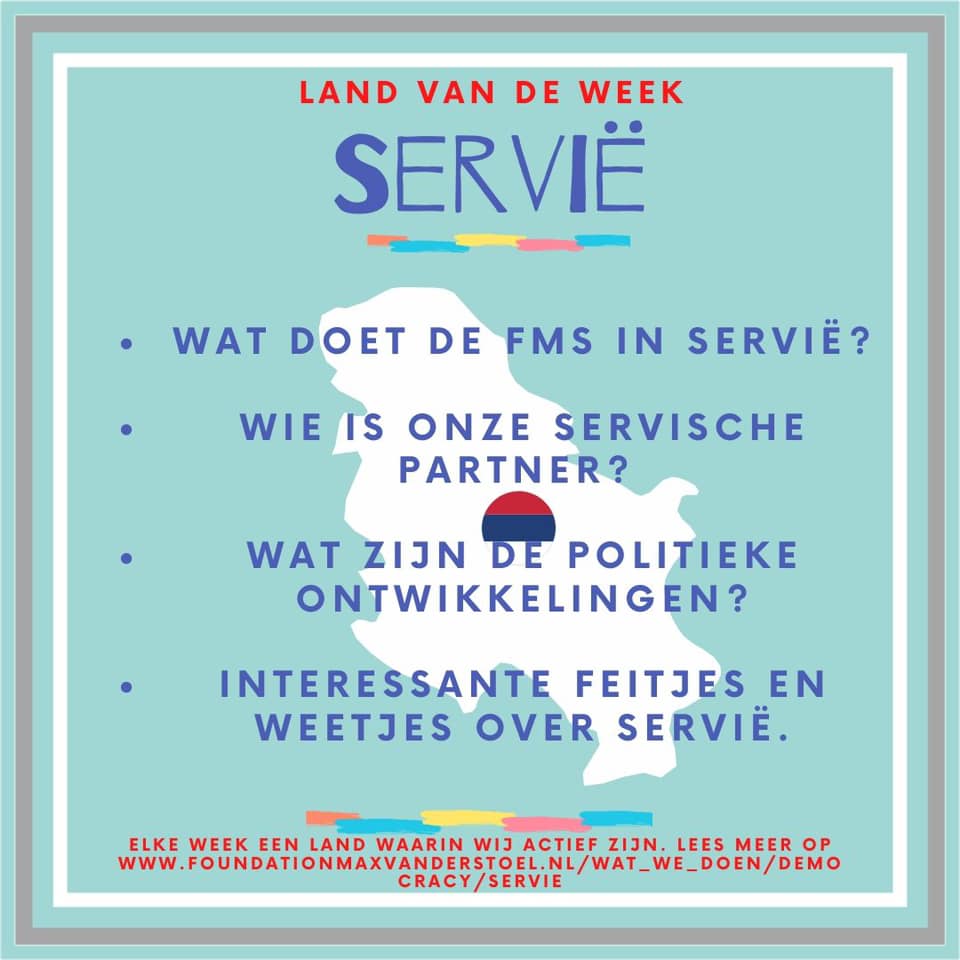
What exactly does FMS do? Where are you active? Who are your partners? Every week we will answer all these questions and more in our new initiative: 'Country of the Week'. Each time, we will highlight one of the countries in which we operate and highlight what we do there through videos, fun facts and stories from our projects! This week: Serbia!
Quarantined democracy: the western Balkans
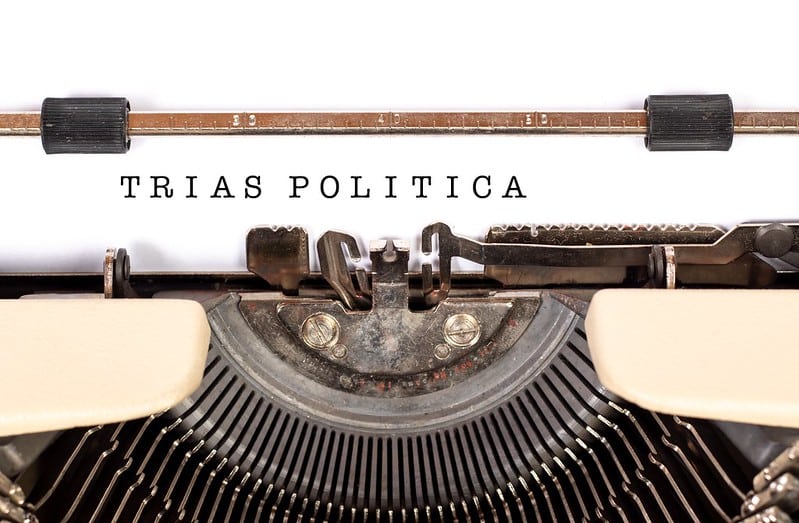
It seems that EU and its neighbours should not quarantine democracy for too long, as the Hungarian parliament passed the coronavirus law on 30 March. A controversial law designed to deal with the corona crisis. This law has no end date for the state of emergency. Prime Minister Orban received a blank check as a result. Based on this law, Orban gains a lot of power. Áll existing laws in Hungary can currently be temporarily set aside or ignored at his discretion. In addition, the Orban government can decide how long the state of emergency should remain in force. As a result, elections and referendums are not possible while the state of emergency continues. The 'Orban law' also poses a risk to journalists as they are accused of spreading 'fake news'. This puts freedom of expression at risk. Serbia and Montenegro also seem to be exploiting the corona crisis to curb media freedom. This poses a major problem for democratic rule of law and freedoms.
